
Clinicians are often busier than usual during the holidays. How can you find the time to spend quality time with your loved ones?

Clinicians are often busier than usual during the holidays. How can you find the time to spend quality time with your loved ones?
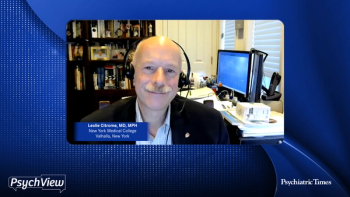
Drs Paul Doghramji and Leslie Citrome share approaches to communicate with patients and increase awareness of insomnia disorder
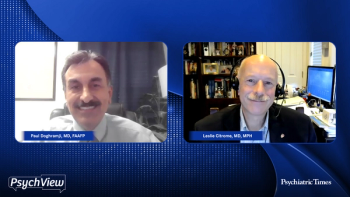
Leslie Citrome, MD, MPH, comments on long-term data for daridorexant, suvorexant, and lemborexant.

"Love is apart from all things. Desire and excitement are nothing beside it."

What's important about gratitude?

Experts discuss daridorexant efficacy and safety data, and dosing considerations and what to communicate with patients when using daridorexant for insomnia.

Drs Paul Doghramji and Leslie Citrome provide an overview of dual orexin receptor antagonists (DORAs), suvorexant, lemborexant, and daridorexant, in treatment of insomnia disorder.

"For no particular reason I lift my dusty volume of Freud’s Standard Edition from a shelf..."

Are you ready to be CHEERFUL this year?

Postpartum depression and major depressive disorder in pregnant and postpartum women are severely underdiagnosed and undertreated. How can we more effectively help this patient population?
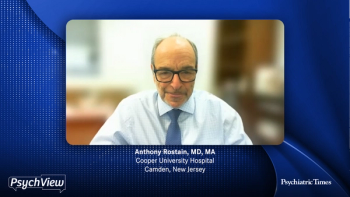
Experts in attention-deficit/hyperactivity disorder discuss future nonmedication interventions, like trigeminal nerve stimulation and digital therapeutics.
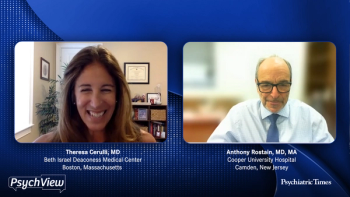
Theresa Cerulli, MD, discusses the practical considerations for using serdexmethylphenidate-dexmethylphenidate for the treatment of attention-deficit/hyperactivity disorder.

Drs Paul Doghramji and Leslie Citrome discuss the sleep and wakefulness signals and pathways that contribute to insomnia.

Drs Paul Doghramji and Leslie Citrome review the use of the Insomnia Daytime Symptoms and Impacts Questionnaire (IDSIQ) to assess treatment efficacy.

"Look out for me I’m a-coming too..."
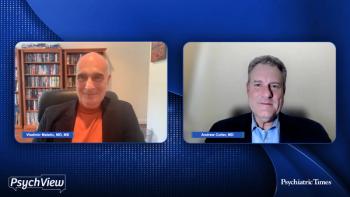
Andrew Cutler, MD, shares his key takeaway advice to psychiatrists for the diagnosis and treatment of patients with bipolar 1 disorder.

Vladimir Maletic, MD, MS, and Andrew Cutler, MD, share their insights into considerations surrounding the use of long-acting injectables in bipolar 1 disorder.

Experts in psychiatry comment on the challenges of patient adherence to bipolar 1 disorder treatments and discuss the efficacy and safety of LAIs.

What does being a leader mean?
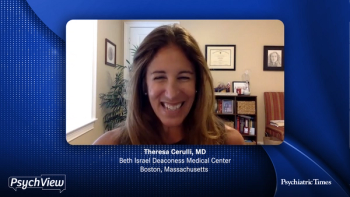
Theresa Cerulli, MD, describes the indication and mechanism of the recent FDA approved combination product serdexmethylphenidate /dexmethylphenidate for the treatment of attention deficit/hyperactivity disorder (ADHD).

Experts discuss treatment for patients experiencing insomnia in conjunction with other health conditions.

Experts in attention-deficit/hyperactivity disorder (ADHD) discuss how to determine treatment failure in adults and the benefit of different dosing strategies for therapeutic options.

Drs Paul Doghramji and Leslie Citrome review prescription drugs and over-the-counter remedies for treating insomnia.

"I scribble as if my father is beside me years and years ago, scoring whole-notes, white holes through rims of night."

Vladimir Maletic, MD, MS, and Andrew Cutler, MD, highlight the use of long-acting injectables (LAIs) as a treatment option for bipolar 1 disorder.

Experts in psychiatry discuss the use of antipsychotics for treatment of bipolar 1 disorder.

How can psychiatrists help ease the fear surrounding elections?
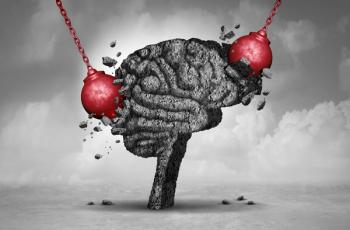
How are these conditions connected, and what are the unique risks for athletes and military personnel?

Theresa Cerulli, MD, and Anthony Rostain, MD, MA, discuss challenges with substance abuse related to pharmacologic interventions for adult attention-deficit/hyperactivity disorder (ADHD) treatment.

Experts in treatment of attention-deficit/hyperactivity disorder discuss the benefits of different drug formulations and the potential for abuse of immediate-release medications.